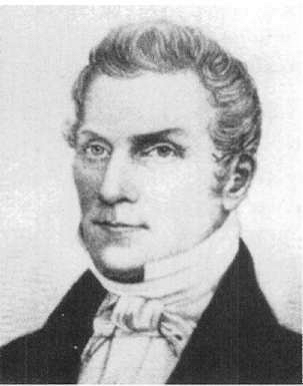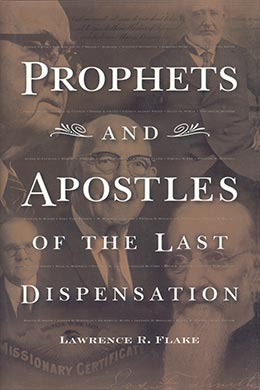Hyrum Smith
Lawrence R. Flake, Prophets and Apostles of the Last Dispensation (Provo, Utah: Religious Studies Center, Brigham Young University, 2001) 155–57.

Born: 9 February 1800, Tunbridge, Vermont
Assistant counselor in the First Presidency: 3 September 1837 (age 37)
Second counselor to President Joseph Smith: 7 November 1837
Patriarch to the Church and Assistant President of the Church: 24 January 1841
Died: 27 June 1844 (age 44), Carthage, Illinois
In his journal the Prophet Joseph Smith wrote of his older brother Hyrum: “I could pray in my heart that all my brethren were like unto my beloved brother Hyrum, who possessed the mildness of a lamb, and the integrity of a Job, and in short, the meekness and humility of Christ; and I love him with that love that is stronger than death.” [1]
This was the brother who had stayed night and day at the bedside of Joseph when at the age of seven Joseph was stricken with a fever and had to undergo an excruciating operation on his leg. This was the brother who believed immediately and without reservation the incredible experiences Joseph began relating at the age of fourteen. This was the brother who, though six years Joseph’s senior, stood by the young prophet through all the joys and sorrows of New York, Ohio, Missouri, and Illinois, and who refused to leave his brother’s side even when assassination at Carthage was virtually certain. John Taylor fittingly wrote, “In life they were not divided, and in death they were not separated” (D&C 135:3).
One of the eight witnesses to the Book of Mormon, Hyrum was baptized by Joseph in June 1829, and when the Church was organized, he was one of the six charter members. In Missouri he was sentenced with Joseph to be shot, and he languished with his brother six months in the filthy prisons of that state before escaping. From 1837 to 1841 he was a counselor in the First Presidency, and from 1841 until his death he jointly held the offices of patriarch to the Church and assistant president. In the latter office, he stood second in authority over the Church and, had he not shared the same fate as his brother, would have become the president. His widow, Mary Fielding, whom he married in 1837, reared their daughter and a son, Joseph Fielding, who became the sixth president of the Church. In addition, she became mother to five children who were born to Hyrum and his first wife, Jerusha Barden, who preceded him in death by seven years.
Before the tragedy at Carthage, Joseph wrote these words: “Brother Hyrum, what a faithful heart you have got! Oh may the Eternal Jehovah crown eternal blessings upon your head, as a reward for the care you have had for my soul! O how many are the sorrows we have shared together; and again we find ourselves shackled with the unrelenting hand of oppression. Hyrum, thy name shall be written in the book of the law of the Lord, for those who come after thee to look upon, that they may pattern after thy works.” [2]
Another great tribute was paid Hyrum by John Taylor, badly wounded himself, as he gazed upon the lifeless body of the patriarch a few minutes after the assassination at Carthage: “There he lay as I had left him. . . . He had not moved a limb; he lay placid and calm, a monument of greatness even in death: but his noble spirit had left its tenement and had gone to dwell in regions more congenial to its exalted nature. Poor Hyrum! he was a great and good man, and my soul was cemented to his. If ever there was an exemplary, honest and virtuous man, an embodiment of all that is noble in the human form, Hyrum Smith was its representative.” [3] The highest tribute paid to this noble brother was revealed in January 1841: “Blessed is my servant Hyrum Smith; for I, the Lord, love him” (D&C 124:15).
Notes
[1] Pearson H. Corbett, Hyrum Smith: Patriarch (Salt Lake City: Deseret Book, 1963), x.
[2] History of the Church, 5:107–8.
[3] B. H. Roberts, The Life of John Taylor, Third President of the Church of Jesus Christ of Latter-day Saints (Salt Lake City: Bookcraft, 1963), 142.
